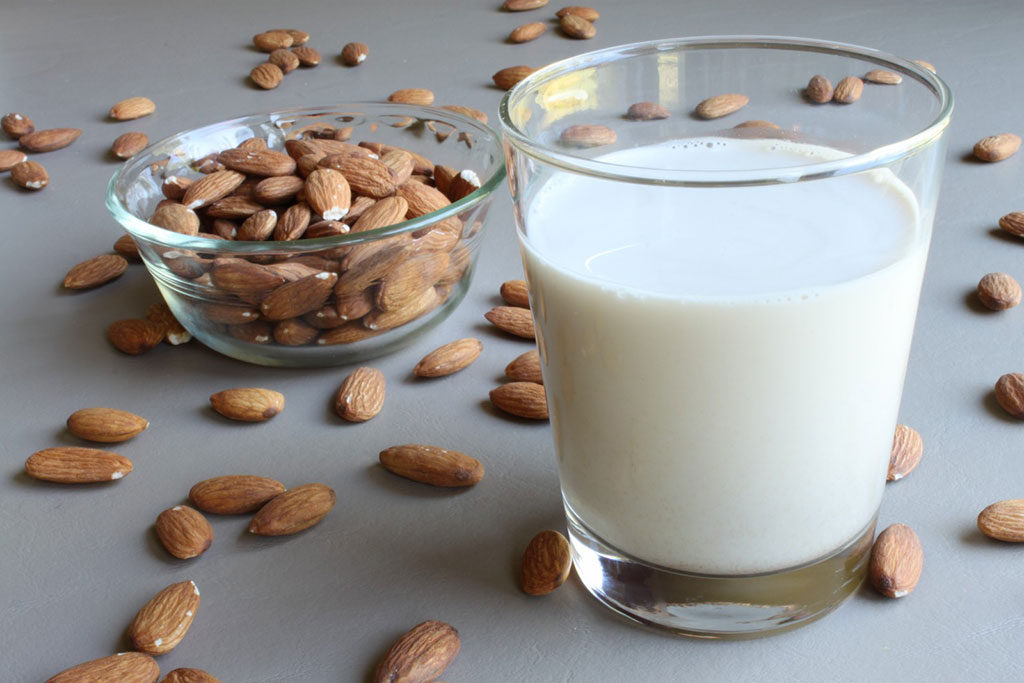Discover the benefits of almond milk
Whether you are a vegetarian, sensitive to lactose or you simply do not like the taste of cow’s milk, almond milk is a great milk substitution.
While almond milk is becoming increasingly popular, it is important to note that it does not contain as much protein and calcium as milk from animal origin, so make sure you get sufficient amounts through other foods. One cup of almond milk contains only one gram of protein as compared to cow’s milk that contains 8 grams of protein, also almond milk contains 2 milligrams of calcium and cow’s milk has 300 milligrams.
When you buy almond milk be sure to check the labels and buy almond milk containing the least amount of preservatives and other additives.
Advantages of almond milk
Helps in regulation of body weight
One cup of almond milk contains only 60 calories, compared to the 146 calories of high-fat cow’s milk at the same quantity. It makes a very good substitute that will help you maintain your desired body weight.
Has positive effect on the heart
It contains no cholesterol or saturated fats, unlike the healthy fats (such as omega fatty acids), which help prevent high blood pressure and heart disease.
Keeps your bones strong
Although it does not contain as much calcium as cow’s milk, almond milk provides 30 percent of the recommended daily dose of calcium, as well as 25 percent of the recommended amount of vitamin D. It reduces the risk of arthritis and osteoporosis and contributes to improving the functions of the immune system. These two nutrients are important for our health and normal functioning of our bones.
Keeps your skin healthy
Almond milk contains 50 percent of the recommended daily allowance of vitamin E and has antioxidant properties essential for the health of your skin, protecting it from the sun.
Doesn`t affects the blood sugar levels
Almond milk (without additives) have a low level of carbohydrates, which means that it will not significantly increase blood sugar levels, thereby reducing the risk of diabetes. Because of its low glycemic index, your body will use carbohydrates for energy so that sugar will not turn into fat.
Contributes to muscle strength
Although almond milk contains only 1 gram of protein per serving, contains plenty of B vitamins, such as iron and riboflavin, which is important for muscle growth and healing.
Boosts the metabolism and affect digestion
Almond milk contains a certain amount of fiber, which improves digestion.
It does not contain lactose
Persons who are not tolerant to lactose have a problem with degradation of sugars from cow’s milk. This makes almond milk suitable as a substitute that does not contain lactose.
Taste better than cow’s milk
Almond milk has a completely different taste compared to cow’s milk. It has its own unique taste. Plus, it can be applied as an addition to meals instead of cow’s milk in almost all recipes that require it. It will not have the same taste, but you’ll get the same consistency.
Does not require refrigeration
Knowing that almond milk does not have to be kept in the fridge, you can feel free to carry it on work, or for on a trip.
It’s easy to make
Almond milk is a suitable alternative because it can be easily made at home. It is made of finely ground almonds in a blender with water, which is then filtrated through a strainer to separate the liquid. The pulp that remains on the sieve can also be used for cakes, as almond flour or similar.
Related: Kefir The Miraculous Probiotic Milk – Health Benefits And Recipes

